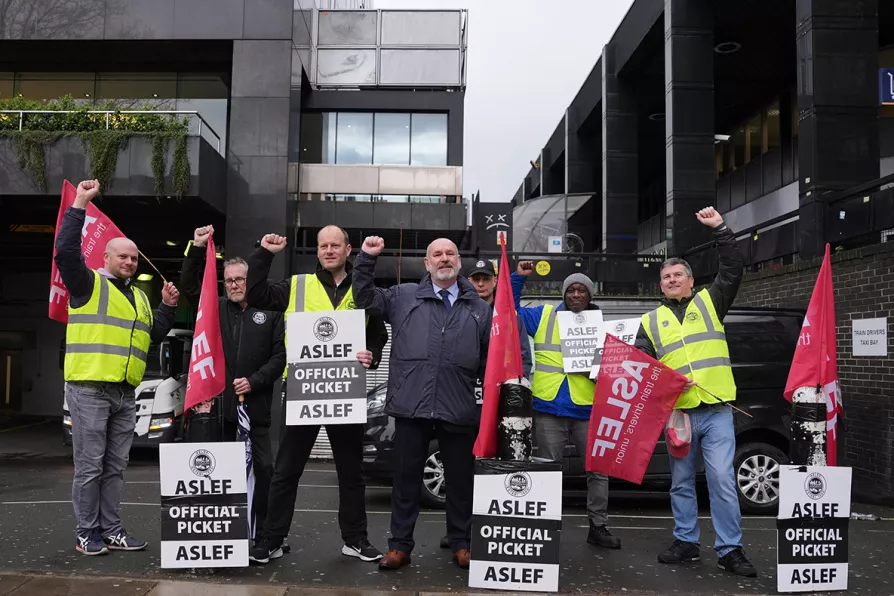
 Aslef general secretary Mick Whelan (centre) on the picket line at Euston train station in London, as members of train drivers union are launching a wave of fresh walkouts in a long-running dispute over pay, April 5, 2024
Aslef general secretary Mick Whelan (centre) on the picket line at Euston train station in London, as members of train drivers union are launching a wave of fresh walkouts in a long-running dispute over pay, April 5, 2024
TRAIN drivers are to vote on a pay deal which could end more than two years of industrial action.
The deal was hammered out in talks between their union Aslef and the new government’s Department of Transport.
Aslef general secretary Mick Whelan, assistant general secretary Simon Weller and executive committee President Dave Calfe said in a statement: “We are pleased that after being treated with utter contempt for the last two years by the privatised train companies, and the previous government that was pulling their strings, we finally have a new government – a Labour government – that listens and wants to make the railway work for staff, for passengers, and for the taxpayer.

On the eve of the 157th Trades Union Congress, MICK WHELAN, general secretary of Aslef, the train drivers’ union, celebrates victory in his campaign to get dignity for drivers at work

But unions warn renationalisation must not be fudged

Walkout follows long-running dispute over sacking











